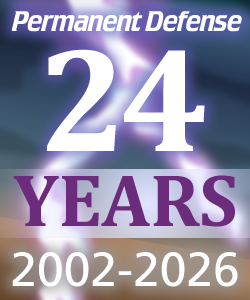January 21st, 2016
Required reading during today’s episode of The Pam Roach Show
Legislation & Testimony
This morning, Republican State Senator and Tim Eyman ally Pam Roach is holding a hearing on a proposed amendment to the Washington State Constitution that would sabotage our cherished tradition of majority rule, which dates back to statehood (SJR 8211). It’s one of several similar amendments introduced by Republican senators so far this year.
Article II, Section 22 of the Constitution provides: “No bill shall become a law unless on its final passage the vote be taken by yeas and nays, the names of the members voting for and against the same be entered on the journal of each house, and a majority of the members elected to each house be recorded thereon as voting in its favor.”
The Supreme Court ruled in League of Education Voters (2013) that majority means “greater than fifty percent”, striking down a series of initiatives that had unconstitutionally set up a higher threshold for passage of revenue bills.
Eyman, Roach and other militant Republicans like Don Benton want to require a two-thirds vote of both houses of the Legislature to pass any bill that raises or recovers revenue for the state treasury. This would allow a submajority of lawmakers — as few as seventeen senators out of one hundred and forty-seven total lawmakers (12%) — to dictate what happens to any future tax reform proposal.
Absurdly, although it would take a two-thirds vote to repeal tax breaks under the rules Eyman wants, new tax breaks could still be created by majority vote.
The principal consequence of SJR 8211, if passed, would be to lock in our state’s broken, worst-in-the-nation tax system permanently.
Other states have changed their constitutions to put control over the outcome of revenue decisions into the hands of a few instead of the many, and the results haven’t been good.
If you’re tuning in to see The Pam Roach Show on TVW this morning, here are some materials we recommend reading to appreciate the damage and gridlock that supermajority requirements have caused in other states in the Union, notably California, which has previously required a two-thirds vote to pass budgets as well as raise revenue.
- Center on Budget and Policy Priorities: Six Reasons Why Supermajority Requirements to Raise Taxes Are a Bad Idea (February 2012)
- Key excerpt: “An argument often heard in debates over supermajorities is that state taxes should be lower. But there is little evidence that states with such requirements actually have lower taxes. The average state with a constitutional supermajority rule covering all tax increases has tax levels that are nearly identical to the tax levels in the average other state. Taxes have been flat as a share of personal income in both supermajority and non-supermajority states for the last three decades.”
- PBS: Gridlock Grips California Government (November 2011)
- Key excerpt: “It takes a two-thirds vote in the legislature to raise taxes, and the Republicans (like their counterparts in Washington) would not vote for any such increase. So the governor cut money for schools, universities, health care, social services, parks and practically everything else the state is involved in. This is not good news for those who depend on state aid.”
- State Building & Construction Trades Council of California: That’s Enough Gridlock; Time to End the Two-Thirds Vote Threshold for Tax Measures (February 2013)
- Key Excerpt: “It’s pretty clear that this arbitrary two-thirds requirement is causing great harm throughout California. It is unfair and unjust, it is thwarting the will of the people, and it is harming our quality of life by blocking badly needed improvements for transportation and other infrastructure building.”
- Michigan League for Human Services: Supermajority Proposal: A Super-Bad Idea for Michigan (June 2012)
- Key Excerpt: “Efforts to end ineffective and unfair tax breaks that benefit large, profitable corporations and other special interests would also be subject to the supermajority requirement since they would raise revenue. This would make it much more difficult to eliminate them even if they fail to create jobs. But only a simple majority would be needed to create or expand costly tax loopholes.”
At NPI, we believe majority rule is good for Democrats and Republicans alike. We believe we should learn from the experience of states like California, which have been paralyzed by legislative gridlock due to undemocratic, unwise schemes that allow a submajority to dictate what happens to revenue bills and budgets.
Our state’s founders discussed what the appropriate threshold for passage of bills was when they wrote our Constitution, and they decided, appropriately, that a majority vote was the only standard that made sense. Our tradition of majority rule has served us well since statehood, and we ought to keep it. SJR 8211 should be rejected.



